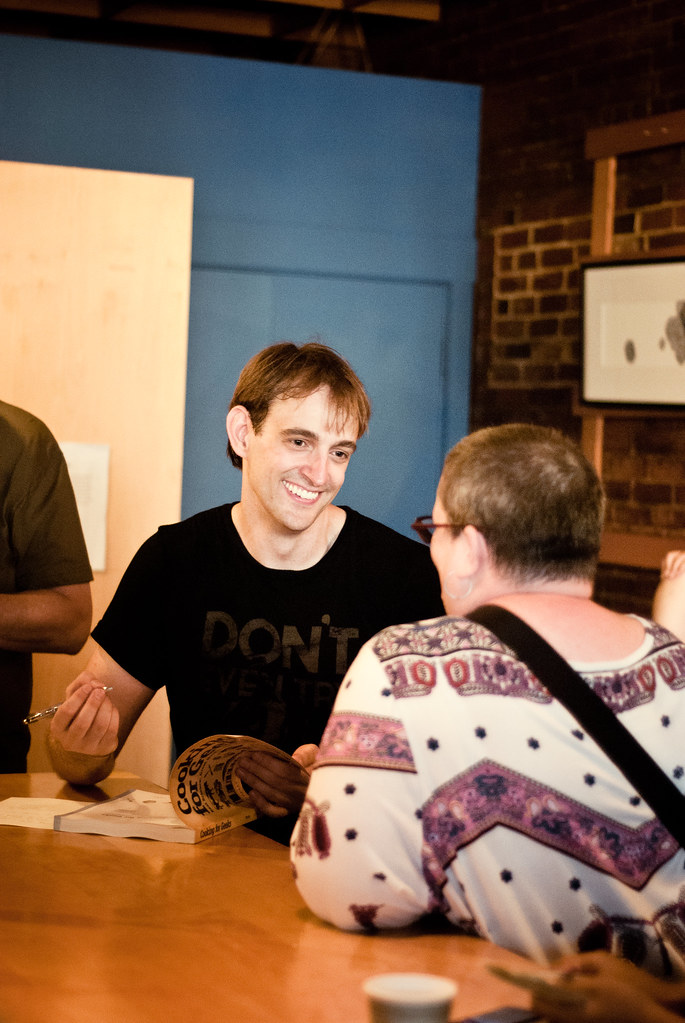
Jeff Potter, author of Cooking For Geeks, this afternoon at Toscannini's Ice Cream, Cambridge. I bought a copy, got free ice cream, an autograph, and even some advice on science writing! What a nice guy!
And, seriously, his book is way cool. Take this delightful passage from a section entitled "310F/154C: Maillard Reactions Become Noticeable":
The Maillard reaction turns foods brown and generates mostly pleasant volatile aromatic compounds. You can thank Maillard reactions for the nice golden-brown color and rich aromas of a Thanksgiving turkey, Fourth of July hamburger, and Sunday brunch bacon. If you're still not able to conjure up the tastes brought about by Maillard reactions, take two slices of white bread and toast them—one until just before it turns brown, the second until it has a golden-brown color—and taste the difference.
The nutty, toasted, complex flavors generated by the Maillard reaction are created by the hundreds of compounds formed when amino acids and certain types of sugars combine and then break down. Named after the French chemist Louis Camille Maillard, who first described it in the 1910s, the Maillard reaction is specifically a reaction between amino acids (from proteins) and reducing sugars, which are sugars that form aldehydes or ketone-based organic compounds in an alkaline solution (which allows them to react with the amines). Glucose, the primary sugar in muscle tissue, is a reducing sugar; sucrose (common table sugar) is not.
And now you know! (Or at least been pleasantly reminded, I'm sure.)
Other items of geeky goodness include doing sous vide in a dishwasher, nuking a hot dog via electrocution, and cooking with liquid nitrogen; and of course, the requisite text on the three forms of heat transfer (particularly helpful is the contour plots showing the temperature gradients in cross-sections of steak in an oven vs. steak on a grill). I know nothing about cooking, but if there were ever a book that could teach me, this is the one.
2 comments:
I want this book! What advice did you get on science writing?
He talked a little bit about the challenges of representing scientists and their ideas in layman's terms, and how difficult it can be to please them. He also gave me some journal references if I ever wanted to read up on food science. Super nice guy. Wish you could have been there! :)
Post a Comment